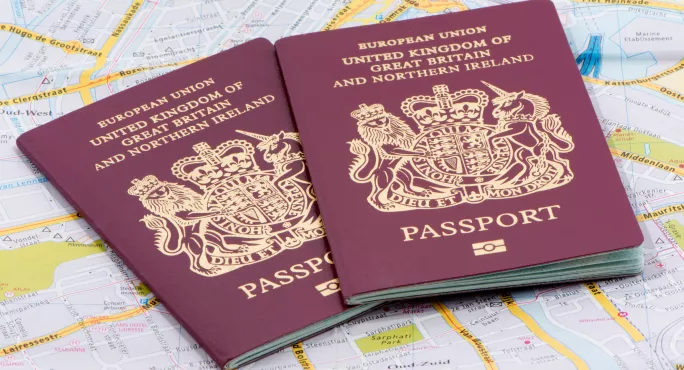How will Brexit impact EU schools’ recruitment?

Britain’s departure from the European Union marks a significant change to the way in which international schools in the EU recruit teachers from overseas.
As of 31 December 2020, UK teachers must jump the same hurdles as those from non-EU countries when moving to work in the Schengen zone.
So, what does this mean for UK teachers in the international recruitment market?
It is estimated that at least 800,000 Brits live in the EU, with many choosing to send their children to international schools. Brexit may create more paperwork, but it is unlikely to dampen the desire for British teachers in the EU, especially given the high demand for English language tuition.
How Brexit affects EU schools recruiting UK teachers
To make the process as easy as possible for international schools in the EU, our recruitment guide sets out the rules, costs and legal hurdles involved in hiring UK staff. As details vary from country to country, the guide sets out the general rules for the EU bloc, as well as some country-specific examples.
1. Immigration
For UK citizens living in the EU before 31 December 2020:
- UK citizens living in the EU before 31 December 2020 are covered by the Withdrawal Agreement, which guarantees rights within the member state.
- British teaching staff must apply for residency to demonstrate that they were living in an EU country before 31 December 2020. Each member state has its own system, details of which can be found on the UK government country guides.
- This should be done as soon as possible, or by June 2021 at the latest.
For UK citizens not living in the EU before 31 December 2020:
Country-specific visas: Low-mid salaries
- UK teaching staff wishing to work in the EU will need to apply for the specific work and residence visas or permits issued by each country. The requirements and administrative processes vary, but most require an offer of employment. See the EU Immigration portal to compare and contrast the requirements for each country.
Example - Spain:
- Before a UK teacher can apply for a work and residence visa, the school or employer must obtain a work authorisation. This is granted if the job falls within the activities listed in the shortage occupations list. If not, the employer can only proceed with the application if they fail to find a suitable Spanish national candidate.
- Once the work authorisation has been issued, the residence and work permits are granted. The employee must then apply for a work and residence visa at the embassy or consulate in their country of residence, which will allow entrance to Spain for work. See more information on the Spanish government website.
Example - Germany:
- The UK teacher must apply for a residence permit for the purpose of employment within Germany. The permit will be granted if the teacher’s recruitment does not cause any negative impact on the labour market and if there is no qualified German or EU/EEA citizen available to fill the position. See more information on the German government website.
EU Blue Card: Mid-high salaries
- An EU Blue Card gives highly-qualified workers from outside the EU the right to live and work in an EU country under the following conditions:
- The applicant’s annual gross salary is at least one and a half times the average national salary of the relevant EU state - for example, €24,535 (£21,700) in Portugal and €53,600 in Germany.
- The UK teacher has a work contract of at least one year.
- The UK teacher has a higher professional qualification such as a university degree, or at least five years of relevant professional experience.
- The teacher fulfils the legal requirements of the relevant EU state to practice as a teaching professional.
- The EU Blue Card applies in all 27 EU countries except Ireland and Denmark.
- The teacher or the recruiting EU school must submit an application for an EU Blue Card to the competent national authorities.
- Compare application fees, salary threshold and more on the EU Immigration portal.
2. Recruitment
- For most EU countries, the teaching role must be advertised locally before being offered to a foreign national. If the role requires a native level of English and UK teaching qualifications, it is more likely that only UK applicants will qualify.
- EU schools can advertise job vacancies on their own website, third-party websites, or on country-specific channels such as public employment portals (eg, AMS eJob-Room in Belgium and Pôle Emploi in France).
- Agencies such as Tes Jobs, Teacher Horizons and Teachaway specialise in recruitment for EU international schools.
- Associations such as the Council of British International Schools represent hundreds of international schools globally and offer advice, opportunities and professional services.
3. Qualifications
- British Schools Overseas (BSO)-accredited schools and many other international schools recognise and accept QTS and do not require UK teachers to gain any additional qualifications.
- In case QTS is not recognised, the UK employee may undertake an additional qualification, such as an International Postgraduate Certificate in Education (iPGCE). The Tes iPGCE, for example, is a recognised level 7 postgraduate academic qualification which can be done online.
- Qualifications like TEFL for English language teachers are recognised internationally. Some EU countries, such as Spain and France, run English conversation assistant schemes, which allow unqualified English speakers to “volunteer” as a language assistant, receiving a monthly stipend on a student visa.
- Read more in our guide to qualifications for teaching abroad and check individual EU member state’s policies for country-specific requirements.
4. Additional Information
Safeguarding
- UK nationals may require an International Child Protection Certificate to teach abroad, which checks the teachers’ details against UK crime databases.
- UK nationals who were living in the EU before 31 December 2020 should apply for criminal record checks or the child protection certificates in the country in which they work.
Healthcare
- European Health Insurance Cards (EHICs) have been replaced by Global Health Insurance Cards (GHICs). However, these are only intended for short stays abroad and emergencies.
- Schools should assist UK staff in the registration process with the relevant health authorities in the EU member state, or recommend reputable health insurance providers.
Covid Travel Restrictions
- Schools and UK applicants are advised to check international travel restrictions and self-isolation requirements of the relevant EU member state.
Eloise Barry is a freelance journalist and English language assistant based in Spain
You need a Tes subscription to read this article
Subscribe now to read this article and get other subscriber-only content:
- Unlimited access to all Tes magazine content
- Exclusive subscriber-only stories
- Award-winning email newsletters
Already a subscriber? Log in
You need a subscription to read this article
Subscribe now to read this article and get other subscriber-only content, including:
- Unlimited access to all Tes magazine content
- Exclusive subscriber-only stories
- Award-winning email newsletters
